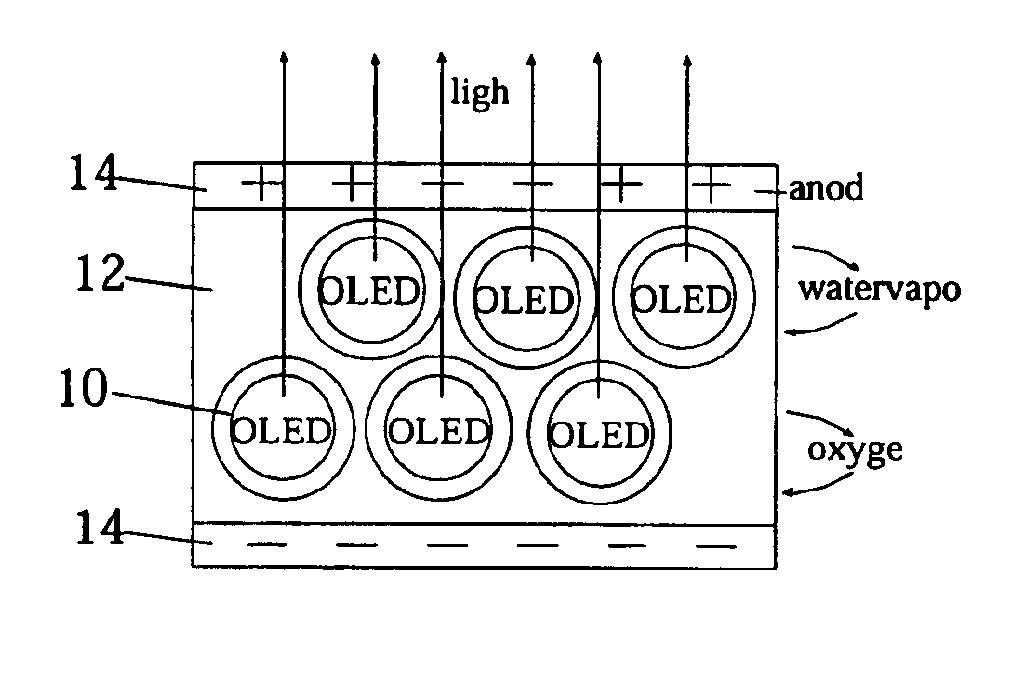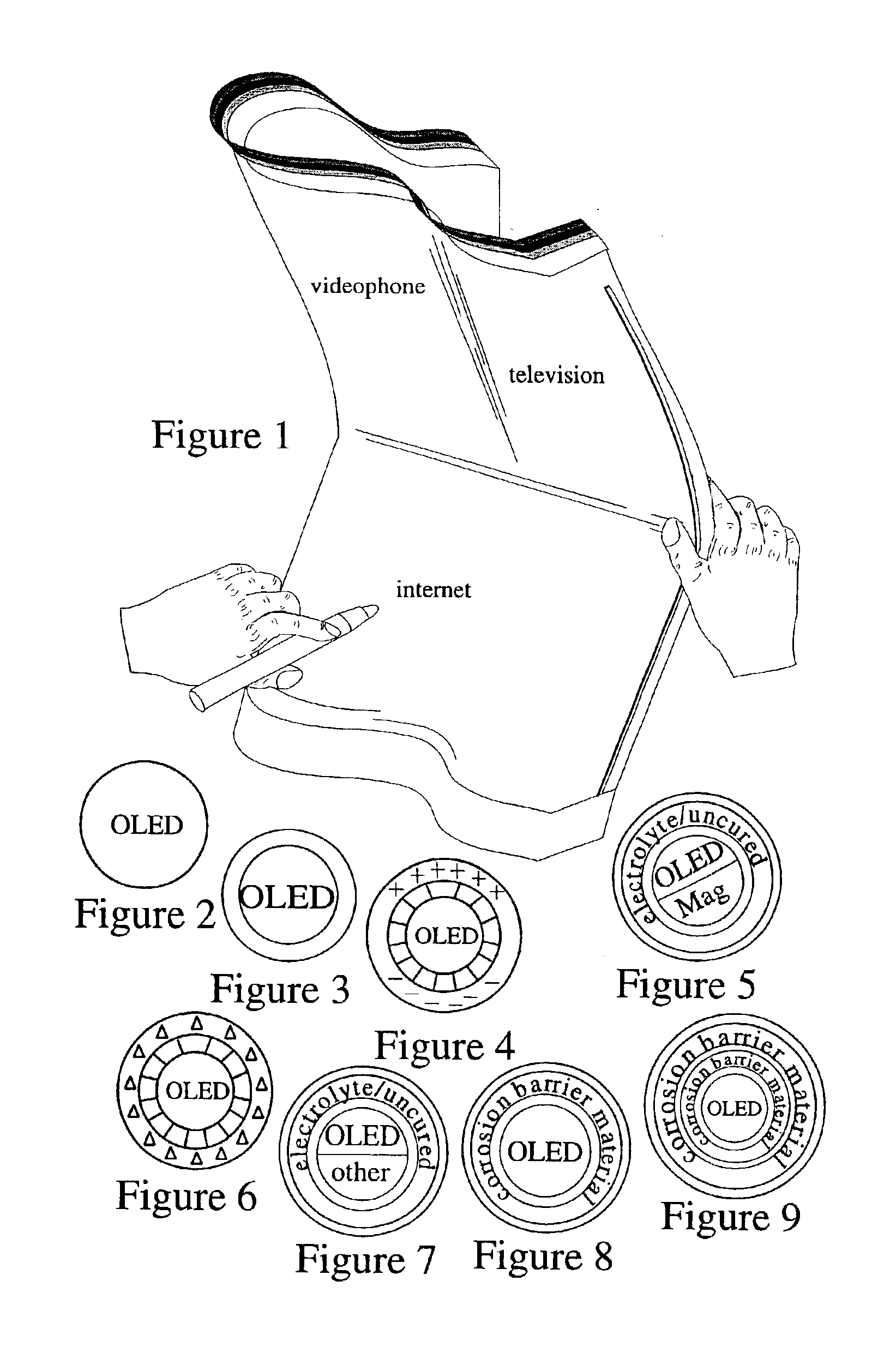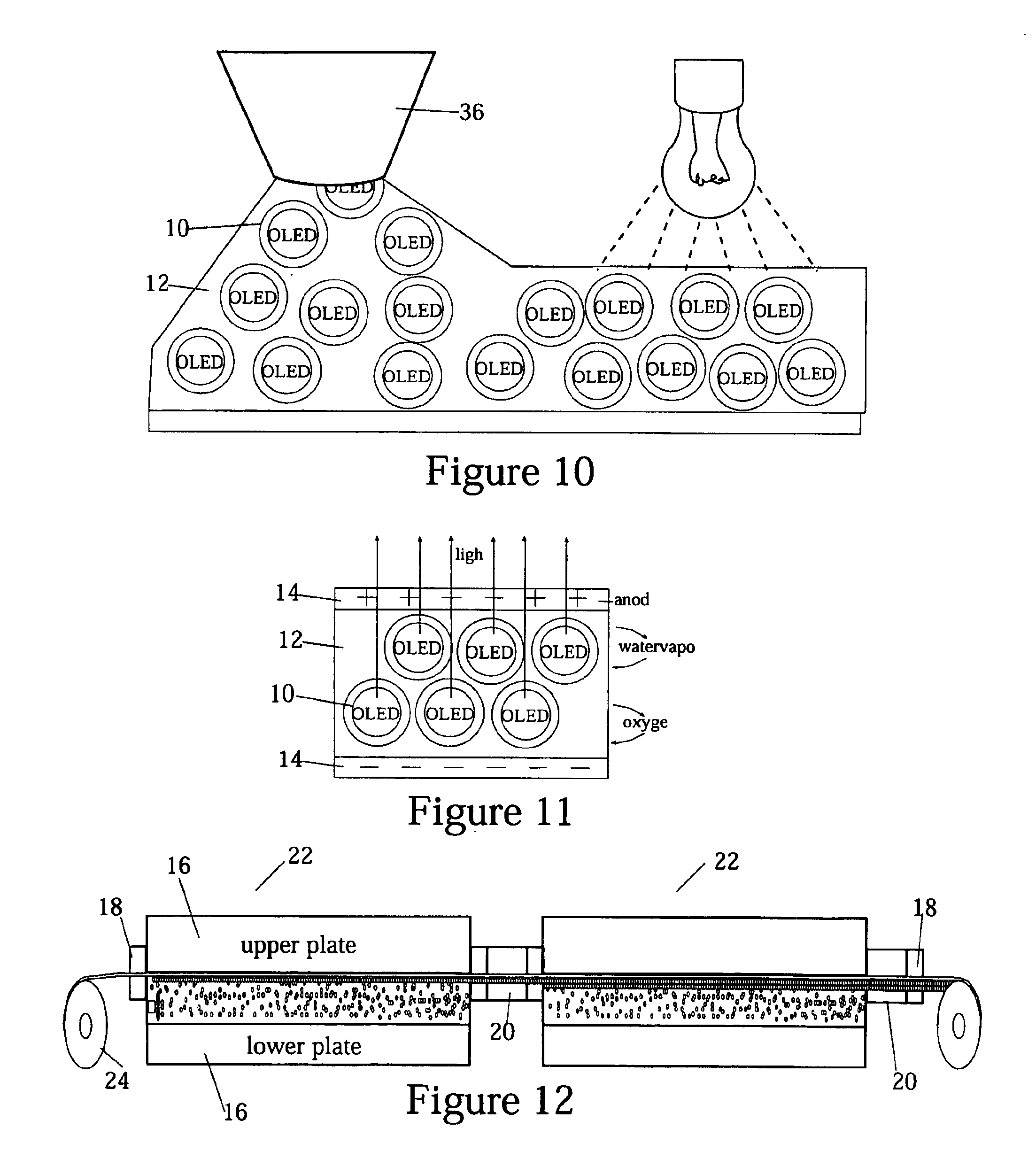Organic light active devices and methods for fabricating the same
a technology of organic light and active devices, applied in the direction of final product manufacturing, sustainable manufacturing/processing, radiation control devices, etc., can solve the problems of light emission, and achieve the effects of simple manufacturing steps, long service life and long shelf li
- Summary
- Abstract
- Description
- Claims
- Application Information
AI Technical Summary
Benefits of technology
Problems solved by technology
Method used
Image
Examples
Embodiment Construction
For purposes of promoting an understanding of the principles of the invention, reference will now be made to the embodiments illustrated in the drawings and specific language will be used to describe the same. It will nevertheless be understood that no limitation of the scope of the invention is thereby intended, there being contemplated such alterations and modifications of the illustrated device, and such further applications of the principles of the invention as disclosed herein, as would normally occur to one skilled in the art to which the invention pertains.
FIG. 1 illustrates an embodiment of the inventive thin, lightweight, flexible, bright wireless display having components capable of being manufactured by the inventive display fabrication method, showing the simultaneous display of mapped hyperlinked content, a videophone stream and a broadcast TV stream. FIG. 1 illustrates an embodiment of an inventive thin, lightweight, flexible, bright, wireless display showing the simul...
PUM
| Property | Measurement | Unit |
|---|---|---|
| thick | aaaaa | aaaaa |
| electrical energy | aaaaa | aaaaa |
| electrical characteristics | aaaaa | aaaaa |
Abstract
Description
Claims
Application Information
 Login to View More
Login to View More - R&D
- Intellectual Property
- Life Sciences
- Materials
- Tech Scout
- Unparalleled Data Quality
- Higher Quality Content
- 60% Fewer Hallucinations
Browse by: Latest US Patents, China's latest patents, Technical Efficacy Thesaurus, Application Domain, Technology Topic, Popular Technical Reports.
© 2025 PatSnap. All rights reserved.Legal|Privacy policy|Modern Slavery Act Transparency Statement|Sitemap|About US| Contact US: help@patsnap.com



